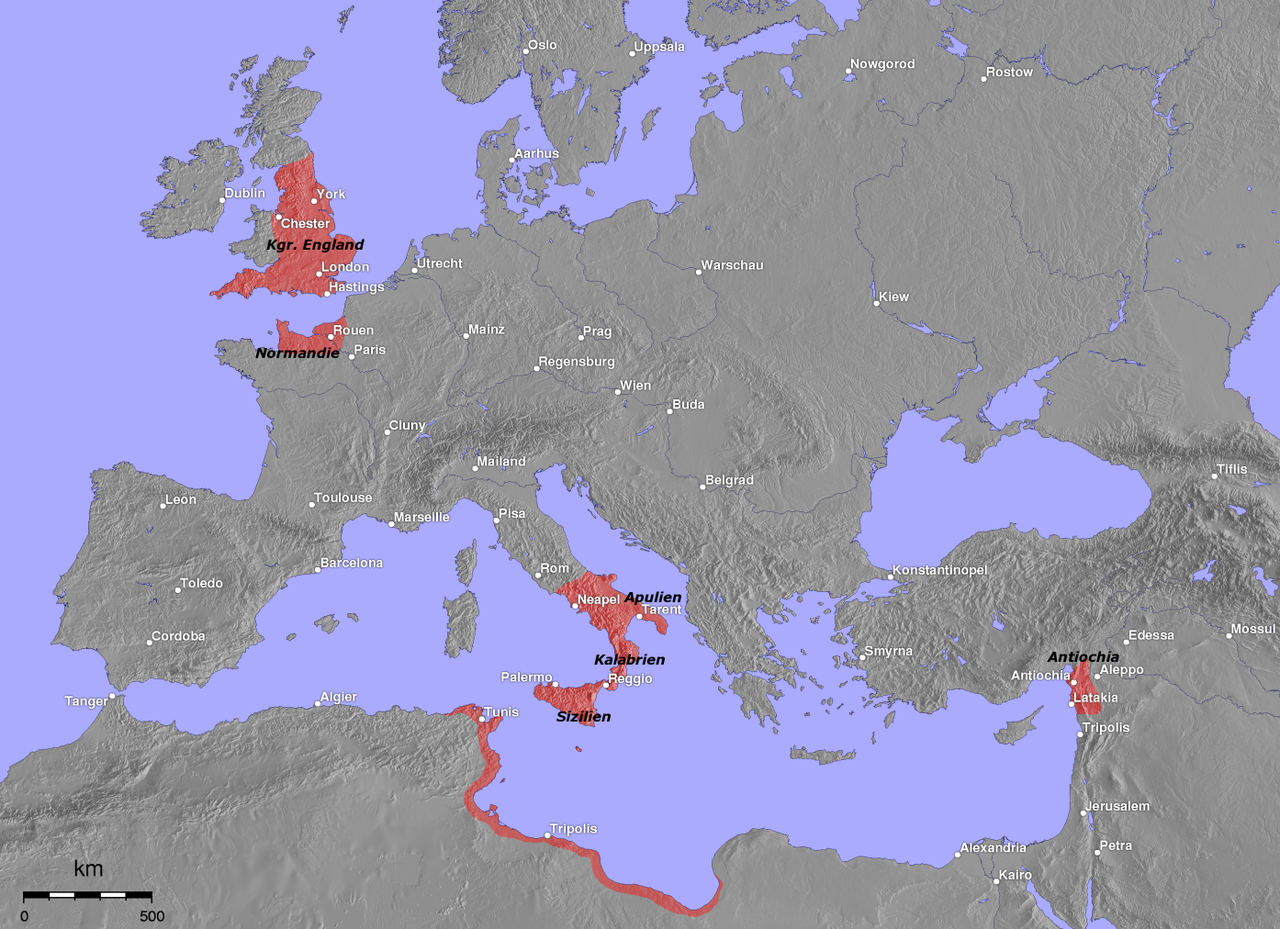GreekOrthodox
Psalti Chrysostom
- Oct 25, 2010
- 4,121
- 4,191
- Country
- United States
- Faith
- Eastern Orthodox
- Marital Status
- Married
I'm going to suggest the early second century. A Protestant theology of what the Church is, salvation by faith alone, Sola Scriptura and Church leadership do not fit easily or especially well into that context. It's hard to imagine Ignatius or Clement approving of people placing themselves in authority like Luther or Calvin did. Nor do certain of the Fathers statements about salvation add up to a clean or strict version of Sola Fide. They suggest at multiple times, works do matter in the context of our salvation.
I was listening to a podcast of Byzantine history and one of the breaking points after 1054 between East and West is the Normans really threw everyone for a loop by 1130 (in red). Pope Gregory VII, in reaction to the Norman threat to Rome, began to join 'em if you can't beat 'em with the Normans and successfully pushed the Papacy into a political power, especially with forcing the Emperor Henry to walk to Canossa to beg for forgiveness. I would say this time frame is when Rome really starts breaking off into what the Reformers objected to.

Upvote
0
